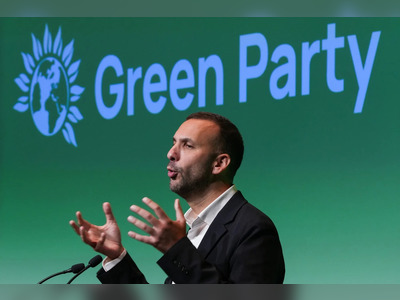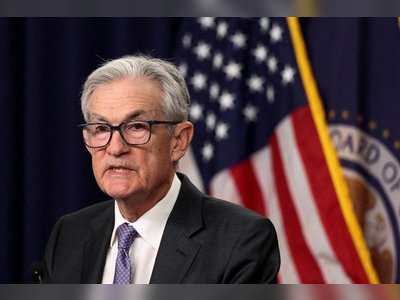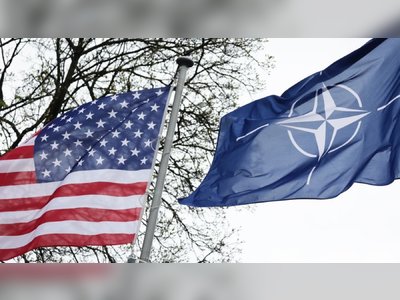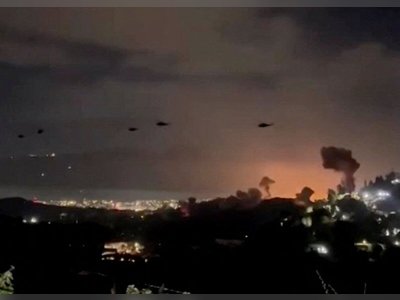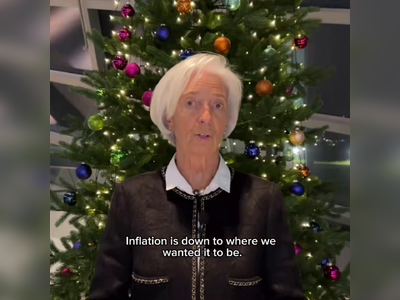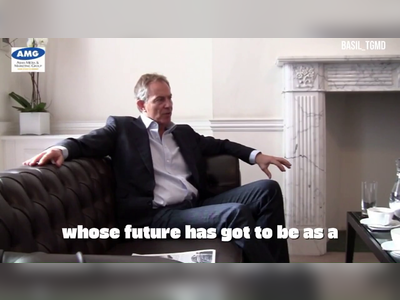Emmanuel Macron Visits Egypt to Address Gaza Crisis
French President focuses on humanitarian aid and support for Arab initiatives during his diplomatic visit.
French President Emmanuel Macron is on a two-day visit to Egypt dedicated to addressing the ongoing humanitarian crisis in Gaza.
His agenda includes a political commitment to support the Arab Plan for the Palestinian enclave, countering controversial proposals from U.S. President Donald Trump, as well as advocating for the lifting of the blockade on aid to the region.
Upon his arrival on the evening of April 6, 2025, President Macron met with Egyptian President Abdel Fattah al-Sissi in Cairo's bustling market.
A formal meeting is scheduled for April 7, followed by a trilateral summit that will include Jordan's King Abdullah II. This diplomatic collaboration is aimed at showcasing solidarity with Egypt and Jordan, both neighboring countries deeply impacted by the situation in the Palestinian territories.
The backdrop of Macron's visit is marked by a significant escalation in hostilities.
Israel resumed military operations in Gaza on March 18 after a two-month ceasefire, an event President Macron has described as a 'dramatic regression'.
At the same time, Israeli Prime Minister Benjamin Netanyahu, a proponent of Trump's plan, is set to meet with officials in Washington.
Trump's recent remarks about potentially relocating Gaza's 2.4 million residents to Egypt and Jordan have faced strong opposition from both nations, which are under pressure from the U.S. administration.
Egypt, as emphasized by Mohamed Marei, the head of the Egyptian Observatory, plays a crucial role in efforts to achieve de-escalation, ceasefire, or an end to hostilities between Israel and Hamas.
The Islamist group sparked the current conflict following unprecedented attacks on Israel on October 7, 2023.
Marei noted that Egypt has firmly rejected Trump's plan, regarding it as a threat to its national interests.
During his visit, Macron intends to reaffirm France's stance against the forced displacement of populations and express support for the Arab Plan, crafted as a counterresponse to the U.S. proposal.
This initiative is credited to Egypt and aims to rebuild Gaza, which has suffered extensive damage from 15 months of conflict, without relocating its inhabitants.
French officials believe that the plan requires further strengthening, particularly in terms of security and governance within the Palestinian enclave.
The Arab states are also advocating for the return of the Palestinian Authority, which has been sidelined by Hamas's control of the territory since 2007.
Macron is set to discuss the necessity of defining a political exit strategy based on a two-state solution—Israeli and Palestinian—during these high-level talks.
In June, he will co-chair a conference at the United Nations alongside Saudi Crown Prince Mohammed bin Salman on this critical issue.
Diplomatic sources suggest that this could provide an opportune moment for France to potentially recognize a Palestinian state.
On April 8, Macron plans to travel to al-Arich in the northern Sinai Peninsula, approximately 50 kilometers from the Rafah crossing, through which humanitarian aid to Gaza is expected to flow.
During this significant stop, he will advocate for the reopening of passageways for humanitarian supplies and reiterate France's commitment to continuing support for Palestinian populations in Gaza.
The majority of Gaza's residents have been displaced by the ongoing conflict and are living in a devastated and besieged area.
Macron's itinerary includes meetings with personnel from French NGOs, United Nations representatives, and the Egyptian Red Crescent, as well as likely encounters with Palestinian beneficiaries of humanitarian aid.
On a bilateral level, France and Egypt are also poised to sign several economic agreements on April 7, covering various sectors, including transportation, health, renewable energy, and academia.
His agenda includes a political commitment to support the Arab Plan for the Palestinian enclave, countering controversial proposals from U.S. President Donald Trump, as well as advocating for the lifting of the blockade on aid to the region.
Upon his arrival on the evening of April 6, 2025, President Macron met with Egyptian President Abdel Fattah al-Sissi in Cairo's bustling market.
A formal meeting is scheduled for April 7, followed by a trilateral summit that will include Jordan's King Abdullah II. This diplomatic collaboration is aimed at showcasing solidarity with Egypt and Jordan, both neighboring countries deeply impacted by the situation in the Palestinian territories.
The backdrop of Macron's visit is marked by a significant escalation in hostilities.
Israel resumed military operations in Gaza on March 18 after a two-month ceasefire, an event President Macron has described as a 'dramatic regression'.
At the same time, Israeli Prime Minister Benjamin Netanyahu, a proponent of Trump's plan, is set to meet with officials in Washington.
Trump's recent remarks about potentially relocating Gaza's 2.4 million residents to Egypt and Jordan have faced strong opposition from both nations, which are under pressure from the U.S. administration.
Egypt, as emphasized by Mohamed Marei, the head of the Egyptian Observatory, plays a crucial role in efforts to achieve de-escalation, ceasefire, or an end to hostilities between Israel and Hamas.
The Islamist group sparked the current conflict following unprecedented attacks on Israel on October 7, 2023.
Marei noted that Egypt has firmly rejected Trump's plan, regarding it as a threat to its national interests.
During his visit, Macron intends to reaffirm France's stance against the forced displacement of populations and express support for the Arab Plan, crafted as a counterresponse to the U.S. proposal.
This initiative is credited to Egypt and aims to rebuild Gaza, which has suffered extensive damage from 15 months of conflict, without relocating its inhabitants.
French officials believe that the plan requires further strengthening, particularly in terms of security and governance within the Palestinian enclave.
The Arab states are also advocating for the return of the Palestinian Authority, which has been sidelined by Hamas's control of the territory since 2007.
Macron is set to discuss the necessity of defining a political exit strategy based on a two-state solution—Israeli and Palestinian—during these high-level talks.
In June, he will co-chair a conference at the United Nations alongside Saudi Crown Prince Mohammed bin Salman on this critical issue.
Diplomatic sources suggest that this could provide an opportune moment for France to potentially recognize a Palestinian state.
On April 8, Macron plans to travel to al-Arich in the northern Sinai Peninsula, approximately 50 kilometers from the Rafah crossing, through which humanitarian aid to Gaza is expected to flow.
During this significant stop, he will advocate for the reopening of passageways for humanitarian supplies and reiterate France's commitment to continuing support for Palestinian populations in Gaza.
The majority of Gaza's residents have been displaced by the ongoing conflict and are living in a devastated and besieged area.
Macron's itinerary includes meetings with personnel from French NGOs, United Nations representatives, and the Egyptian Red Crescent, as well as likely encounters with Palestinian beneficiaries of humanitarian aid.
On a bilateral level, France and Egypt are also poised to sign several economic agreements on April 7, covering various sectors, including transportation, health, renewable energy, and academia.
